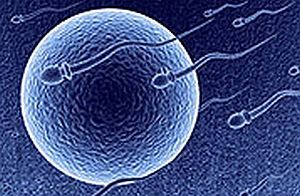- Are You Making This Expensive Thermostat Error This Winter?
- Recognizing the Signs of Hypothyroidism
- 10 Strategies to Overcome Insomnia
- Could Artificial Sweeteners Be Aging the Brain Faster?
- Techniques for Soothing Your Nervous System
- Does the Water in Your House Smell Funny? Here’s Why
- Can a Daily Dose of Apple Cider Vinegar Actually Aid Weight Loss?
- 6 Health Beverages That Can Actually Spike Your Blood Sugar
- Treatment Options for Social Anxiety Disorder
- Understanding the Connection Between Anxiety and Depression
Fresh Embryos Beat Frozen for IVF: Study

When it comes to in vitro fertilization, new research suggests fresh is best.
In the study, researchers analyzed data from 33,000 women who received fresh or frozen embryos derived from freshly retrieved donor eggs.
The data was from 370 in vitro fertilization clinics in the United States that account for more than 95% of all assisted reproduction nationwide.
Women who received fresh embryos derived from fresh donor eggs had significantly higher pregnancy and live birth rates, while miscarriage rates were the same between both groups.
The live birth rates were 56.6% when live embryos were used, compared with 44% for frozen embryos. Clinical pregnancy rates were 66.7% for fresh embryos compared to 54.2% for frozen embryos.
“In cycles using one’s own eggs, recent randomized controlled trials comparing pregnancy rates between fresh and frozen embryo transfers have suggested that pregnancy rates are equivalent or possibly higher following frozen embryo transfers,” said study author Dr. Iris Insogna, a fellow in Reproductive Endocrinology and Infertility at Brigham and Women’s Hospital in Boston.
“Our study suggests the opposite in cycles using freshly retrieved donor eggs. In fresh donor egg recipients, pregnancy rates were actually higher following fresh embryo transfers compared to frozen embryo transfers,” Insogna said in a hospital news release.
While fresh embryos were associated with a higher rate of live births compared to frozen embryos, live birth rates were high for both groups, the researchers noted.
“The transfer of either fresh or frozen embryos derived from freshly retrieved donor eggs provides an excellent chance of achieving a pregnancy,” Insogna noted.
“For women contemplating achieving a pregnancy using freshly retrieved donor eggs, as well as for their physicians, we feel this study provides valuable guidance,” said study senior author Dr. Janis Fox, an attending reproductive endocrinologist in Brigham’s Center for Infertility and Reproductive Surgery.
The study was published Jan. 12 in the Journal of the American Medical Association.
More information
The U.S. National Library of Medicine has more on in vitro fertilization (IVF).
SOURCE: Brigham and Women’s Hospital, news release, Jan. 12, 2021
Source: HealthDay
Copyright © 2026 HealthDay. All rights reserved.










